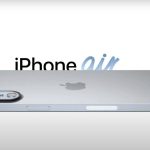Jack Guez/AFP via Getty Images
- In the US, the age minimum to receive a COVID-19 vaccines is 5.
- US officials say a vaccine for younger kids is on its way, pending trial data.
- Some countries have been vaccinating kids and toddlers against COVID-19 for months.
It’s been nearly six months since the US Centers for Disease Control and Prevention authorized Pfizer’s COVID-19 vaccine for everyone as young as 5 years old.
But officials are still holding off on vaccinating younger kids until Pfizer and Moderna conclude their trials testing baby doses for kids aged six months to 4 years old. Europe, meanwhile, is squarely focused on vaccinating kids over 5 years old — with the exception of Sweden, which decided against recommending shots for kids under 11 years old.
In fact, there are just seven countries in the world where younger kids are being vaccinated against COVID-19. Here’s what we know about them:
China began vaccinating younger kids before the Omicron surge
China’s COVID-19 cases have reached new highs this month, as the Omicron variant has spread swiftly and led to lockdowns in Shanghai.
Before the latest variant turned the tide, China’s top priority was rolling out vaccines to its youngest citizens. About 84 million children had received two shots of the Sinovac vaccine by November 2021, when China’s National Health Commission issued an update.
Kids aged 3 and older can get the Sinovac or Sinopharm shots. Vaccination for children is voluntary, officials said.
Vaccine clinics opened in schools around the country in the fall, although some regions are seeing a return to online class and work in recent months.
Hong Kong lowered the age limit for vaccine eligibility as Omicron set in
In Hong Kong, authorities recommended vaccinating children aged 3 and up in November 2021. But it wasn’t until February this year that the age limit was lowered, and toddlers started receiving doses of Sinovac, the vaccine manufactured in China.
With the Omicron variant already causing new spikes in case counts around the world, parents were anxious to get their children vaccinated as soon as possible, the South China Morning Post reported February 15.
Bahrain approved one of the Chinese-made vaccines for young kids
Bahrain signed off on the Sinopharm vaccine, which is also made in China, in October 2021.
Now, children aged 3-11 are eligible to get the Sinopharm vaccine in Bahrain.
Chile rolled out Sinovac to young kids, but says it hasn’t held up well against Omicron
In December, health officials in Chile announced a plan to vaccinate all children ages 3-5.
Based on studies in China, the Sinovac vaccine had a higher rate of adverse reactions in older children than in younger ones, which officials said was a factor in their decision to authorize the shots.
Chilean children can get Sinovac’s COVID-19 vaccine, known in the country as CoronaVac, but early data suggests it might not be very helpful in the fight against Omicron. A Chile-based study (not yet peer-reviewed) of the vaccine found it was 38.2% effective in preventing infections in kids ages 3-5 during the Omicron wave.
The vaccine was more effective when it came to preventing pediatric hospitalizations (64.5%) and deaths (69%).
Argentina authorized Sinopharm for children age 3 years old and up
Argentine health officials authorized the Sinopharm vaccine for emergency use in children ages 3 and up in early October 2021, with the intention of vaccinating everyone who is eligible by 2022.
Health ministry data from January showed 46.3% of children between 3 and 11 were fully vaccinated, while 69.5% had gotten at least their first dose, according to EFE.
Cuba was the first country in the world to start vaccinating kids as young as 2
Cuba started out with ambitious targets for its vaccine rollout. The country aimed to vaccinate 90% of its population by December 2021 using Cuban-made vaccines: Abdala, Soberana-2, and Soberana-plus.
Now, more than 87% of the Cuban population is fully vaccinated, and that includes young children. In October 2021, the country authorized two of its vaccines — Soberana-2 and Soberana-plus — for kids as young as two years old.
Cuba has a reputation for high quality medicine, and researchers behind the nation’s vaccines say they recorded no notable adverse effects in their clinical trials of young kids.
However, international researchers have voiced skepticism.
“None of the results have been published in peer-reviewed journals, so it’s hard to discuss,” Dr. Jon K Andrus, a professor of public health at George Washington University and a former immunization program director at the Pan American Health Organisation, told the Guardian.
Venezuela follow shortly after
In November, Venezuela authorized the emergency use of Soberana-2, one of Cuba’s COVID-19 vaccines, in children aged 2-11.
By late March, the Venezuelan government said 73% of kids had received a dose of the vaccine.
Powered by WPeMatico






